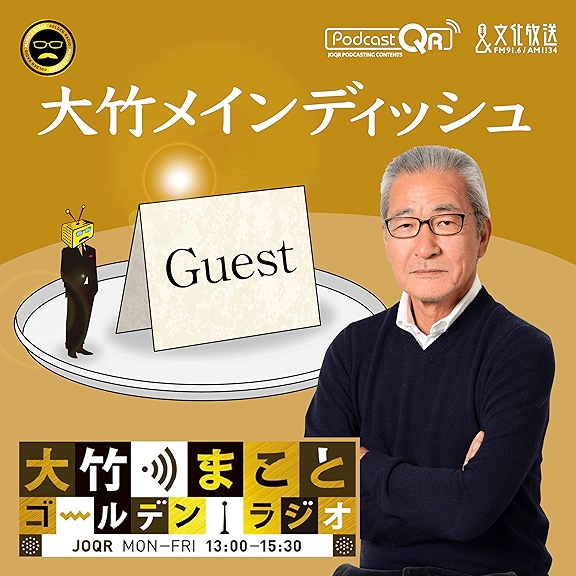
Terry Pinkard (Georgetown)
Practice, power and forms of life: Sartre's appropriation of Hegel and Marx
Philosopher Terry Pinkard revisits Sartre’s later work, illuminating a pivotal stance in Sartre’s understanding of freedom and communal action. Jean-Paul Sartre’s Critique of Dialectical Reason, released to great fanfare in 1960, has since then receded in philosophical visibility. As Sartre’s reputation is now making a comeback, it is time for a reappraisal of his later work. In Practice, Power, and Forms of Life, philosopher Terry Pinkard interprets Sartre’s late work as a fundamental reworking of his earlier ideas, especially in terms of his understanding of the possibility of communal action as genuinely free, which the French philosopher had previously argued was impossible.
Pinkard reveals how Sartre was drawn back to Hegel, a move that was itself incited by Sartre’s newfound interest in Marxism. Pinkard argues that Sartre constructed a novel position on freedom that has yet to be adequately taken up and analyzed within philosophy and political theory. Through Sartre, Pinkard advances an argument that contributes to the history of philosophy as well as key debates on action and freedom.
transcript
August: (00:09)
Welcome to Philosophy Podcasts, where we interview leading philosophers about their recent work. Today, we're talking about the book Practice, Power and Forms of Life: Sartre's Appropriation of Hegel and Marx by Terry Pinkard, University of Chicago Press, 2022. One review from Robert Pippin says, "Pinkard has written a pathbreaking and compelling work that shows the importance of Sartre's extensive rethinking of his understanding of Hegel and Marx and the role of Heidegger's Letter on Humanism in his later thought. Key concepts such as subjectivity, agency, reciprocity, dialectic, materiality, and sociality are given original and philosophically rich interpretations, all presented with striking lucidity. Practice, Power and Forms of Life is an extraordinary tour de force, both as interpretation and as philosophy, and it should lead to a major reassessment of the later Sartre."
August: (01:18)
Terry Pinkard is university professor at Georgetown University. He's the author of many books, including Does History Make Sense? And Hegel on the Historical Shapes of Justice. Welcome.
Terry Pinkard: (01:32)
Oh, thank you. Well, thank you for having me.
August: (01:34)
I wanted to start with a quotation from Sartre, from the article Responsibility of the Writer in 1960. I'm paraphrasing here. He writes, "The writer, whether they wish it or not, is a person who gives the names of love and hate to personal relationships and gives the names of oppression or fellowship to social relationships. The writer can, of course, choose not to speak about something, but to be silent is yet to speak. Silence means something. The writer must therefore always answer the questions: What do I want to change? Why this, rather than that? Thus, we may ask the writer, why do you want to speak and of what on the whole do you want to speak?" So that is a big, serious, un-ironic question. But if you wouldn't mind, if I could pose that to you. It sounds confrontational. But in writing this book, why and of what did you want to speak?
Terry Pinkard: (02:37)
Well, good question. First of all, I wanted to do this on Sartre because I think that Sartre has quite a bit to say about these things and that he's been by and large forgotten. I think unjustifiably forgotten. The large part of this has to do with Sartre's own fault. He was a little over the top and pushing himself and so on and so on here. But also, he's suffered a kind of bad reputation in many respects. Anyway, it's partly his own fault, but not really. Especially, in both France and the United States, there was always a formidable anti-Sartrean group around. This has led to a very, I think, distorted picture of Sartre, that Sartre was a pop philosopher. He was a complete libertine. He was irresponsible. He supposedly had all these terrible political ideas and so on and so on, and that whatever else is the case, he was basically a pop figure, is now best remembered as a pop philosopher.
Terry Pinkard: (03:39)
I think that's just a mistake. I think Sartre has got a lot going on for him. I also think it's time also just to reevaluate and to help dispel some of the myths about Sartre, that part of this has come about just because of the, I say, the Cold War atmosphere in which Sartre was living and so on. Sartre has been portrayed as a member of the communist party, although he was never a member of the communist party. Portrayed as a Stalinist, although he was never a Stalinist, he was always critical of Stalin. He did make some very bad choices about some of the things that he endorsed, some of the causes he endorsed and so on. You might say he was a very good thinker, but in many ways on the ground politically naive about certain types of things.
Terry Pinkard: (04:25)
I think that the later book, the Critique of Dialectical Reason, and then the other things that I talk about really show Sartre in a new light. I'm particularly interested in these and manuscripts that Sartre started after he wrote the Critique of Dialectical Reason, which appeared in 1960, including a 499-page manuscript on ethics that he never got around to revising and publishing, along with several other essays, several other talks that he gave in Rome and so on to the Gramsci Institute there. To see what direction Sartre was going in, to try and say that actually there's a good case to be made for reevaluating Sartre and putting him back into the conversation with things here.
August: (05:06)
Okay. Right, most people would think of Sartre in terms of, as a philosopher, Being and Nothingness. Then I think the standard interpretation is that there was Being and Nothingness and then there was Critique of Practical Reason, but you're saying there were other writings that were not published.
Terry Pinkard: (05:26)
There were other writings that were not published [inaudible 00:05:28]
August: (05:27)
Not Critique of Practical Reason. Critique of Dialectical Reason.
Terry Pinkard: (05:30)
[inaudible 00:05:30]. By and large, the picture is Being and Nothingness, that was Sartre's great work. After that, his philosophy more or less just collapsed. He wrote novels and he wrote plays and he was a journalist and activist and a militant and so on, but there really wasn't any philosophy after [inaudible 00:05:46] 1942. That's the view of a lot of people.
Terry Pinkard: (05:50)
I was trying to argue that, in fact, there's a great deal of very interesting philosophy in this case, that Sartre had never gave that up and that there's things to be learned yet from him about this. So, part of this is just fighting against the overall picture of Sartre as this completely outmoded character and so on and so on.
Terry Pinkard: (06:06)
Now look, to be sure, the Critique of Dialectical Reason is a very difficult book that people have trouble with. It is entirely Sartre's fault, that is, he wrote it in a hurry. It's a giant long book with almost no breaks in it, no chapter headings, no way of dealing with it in that way. In some ways, the English translation is actually a little easier because...
August: (06:30)
They broke up the sentences.
Terry Pinkard: (06:31)
Yeah. Well, Jonathan Ree also added all these chapter headings and so on that weren't there in the original. The original list looks like Finnegan Lake. It just kind of starts and doesn't break, paragraphs that go on for pages and pages and pages and so on. So, this is the kind of thing that as I say in the preface, that being probably the world's most famous intellectual at the time, he thought he could get away with that. Nobody else could do that. He really shouldn't have. So part of this is trying to go back to the book to find out what really is going on in it and get over the big hump of trying to deal with this massive, unstructured book.
August: (07:10)
Right. One of the things I like about your book is that you have a lot of quotations from it. So I usually go through and I underline the sections in the Critique of Dialectical Reasons, and then at this point I have a lot that I've already read through, through you and that should make it easier to access the text, I think.
Terry Pinkard: (07:29)
Oh. Oh, well, good.
August: (07:31)
Yeah. I also think we reflexively today think about, well, let's look at the biography of the person and what does that say or not say about the philosophy? I saw a... So since he died, there've been the criticisms about... So he stayed defending the Soviet Union too long. There was amphetamines. There was the personal life with Beauvoir and these young women they cultivated, and there was one piece he wrote an introduction, to Fanon, which seemed to defend violence. On the other hand, I saw this quotation from the philosopher Lewis R. Gordon, 2008, saying, "I would love to have had a cup of coffee with John Paul Sartre. I would first thank him for his courage. I wonder if his critics would defend their values under the threats he faced, like 5,000 veterans marching down the Champs-Élysées shouting, 'Kill Sartre!'"
Terry Pinkard: (08:33)
That happened.
August: (08:36)
That actually happened, yes. Death threats, assassination attempts. I'm paraphrasing Gordon. And think of Sartre rejecting the Nobel Prize in literature on the grounds of belonging to no institution. Gordon says Sartre "understood the struggle for freedom and what it means to be historical. This made him a constant ally for Black liberation struggles throughout most of the 20th century."
Terry Pinkard: (09:03)
I think that's a good quote from him. I think that's also true of Sartre. Sartre displayed a lot of courage. I mean, besides the veterans marching yelling chain and kill Sartre, they actually he did try to kill Sartre twice.
August: (09:16)
That's right.
Terry Pinkard: (09:16)
Twice the terrorist organization of the secret army, the OAS, actually put plastic explosive in his place and tried to blow up his apartment with him in it twice. And he didn't back down. He kept going with his opposition to the Algerian War. One of the other things about Sartre is that he also is really one of the few people, when you look back at the '50s and '60s and so on, who really took the Black struggle seriously; he took colonialism seriously; he took all those kind of things. Despite his, want to say patchy record on this, he did take the women's struggle seriously. Of course, part of that had to do with Beauvoir both developing his ideas and then injecting all her own new ideas and so on. So he was really one of the very few philosophers for whom this appeared as a topic of concern.
Terry Pinkard: (10:11)
On the whole, mainstream philosophy, both in Europe and in Anglophone philosophy, Britain and the United States, didn't touch that. They didn't touch it. And Sartre did.
August: (10:22)
Right. That's what the 5,000 veterans were...
Terry Pinkard: (10:25)
That's what they were angry about.
August: (10:26)
That's what they're angry about was the support for the...
Terry Pinkard: (10:28)
Yeah. They very angry about that. Of course, this also has led to this very negative view of Sartre. So there's lots of wonderful quotes from Sartre that are taken out of context, such as the ending of No Exit: "Hell is other people." And the famous line from Being and Nothingness, "that man is a useless passion." So he's characterized as this nihilistic, completely negative guy who thought nothing made any sense of itself, which is of course not true. But nonetheless, he made a lot of enemies, and he made a lot of enemies over here in the United States, too, where he was consistently portrayed as a kind of, you might say, weak-minded fellow traveler of the communists. And not really, and not really thinking hard enough about this. But this just misses the whole context on what Sartre's arguments were and so on and so on.
August: (11:16)
Right. Okay. So as we go from Being and Nothingness to the Critique of Dialectical Reason and then beyond the posthumous, at least if we take from Being and Nothing, from 1943 to 1960, some of the changes are indeed going from individual to seeing the individual in a more complex way and also moving from the individual to a group perspective. Is that...
Terry Pinkard: (11:43)
Well, yeah, that's one way of putting it. You might say one of the big changes, of course, is that Sartre began to take something seriously that de Beauvoir had really suggested to him, that he had really to see individual subjectivities engage in reciprocity with each other, which he thought was missing in Being and nothingness. About around 1947, '48 and so on, Sartre had begun to see that himself and was now trying to work out a new theoretical arrangement on how to understand this. So when he wrote Being and Nothingness, he was really not very familiar with Hegel and dialectic, although he adopted some Hegelian terms and so on. But after 1947 or so, after Jean Hyppolite had translated Hegel some, Phenomenology of Spirit in French, brilliant translation, and had then written a very good set of books on Hegel and Heidegger and Marx himself.
Terry Pinkard: (12:41)
Sartre became more involved in this, particularly became involved in thinking about the relation between the I and the we, the first person singular and the first person plural. The old way, because the individual prior to society or society prior to the individual and saying, this is the wrong way to put it. They both go together. Yeah. The individual is something apart from society, but the individual's also not much apart from society. Likewise, society is not just an additive group of individuals, as it might be said in a social contract theorist, but really is something that has a priority over individuals. So how to think about that, how to think about that dialectically without just contradicting yourself. This is part of the force of the Critique of Dialectical Reason is that he's trying to deal with that particular issue to try and show that, actually, both these sides, the individual and social groupings, function together, and they only make sense when they're in this kind of tension-filled relationship.
Terry Pinkard: (13:45)
It is a temptation and it's messy, a natural temptation to want to say, well, it has to be one or the other. One or the other has to be really doing all the work and the other is just subsumed under it. When he read Heidegger's Letter on Humanism, which was an attack on his view in Being and Nothingness, he was led to this view that, in fact, Being and Nothingness really had in a way argued that one side has to take priority over the others here. In constructing this view at first, he stayed with the view that he had in Being and Nothingness. This is what his friend and then antagonist Maurice Merleau-Ponty criticized him for. A famous piece called, Merleau-Ponty wrote it, Sartre as Ultra-Bolshevist here.
Terry Pinkard: (14:31)
In Being and Nothingness, Sarre has thought, in the last analysis there really isn't any such thing as a we, other than just a kind of additive we. Wherein, say, look at, say, our pictures here and say, well, "We're both wearing white shirts. We are wearing white shirts." But there's no deeper unity there.
Terry Pinkard: (14:45)
One of the examples Sartre gave in Being and Nothingness was two people having a fight. So you suppose you and I are fighting each other, and Sartre walks in and says, "August, Terry, what are you two doing?" "We're fighting." Now, we're not really a group. We're not really thinking of ourselves as a group until the third person comes in. Merleau-Ponty said, "Sartre thinks of the socialist party or the political party as that third person." That's really a very Leninist, ultra-bolshevist conception that the workers, the whoever might it be, really can't get together until somebody puts them together.
August: (15:27)
Mm-hmm. It's Hobbesian.
Terry Pinkard: (15:30)
You can perfectly see Sartre slapping his head, kind of, "That's exactly right. That's not what I want to argue." Out of that came to this much more sophisticated view in the Critique of Dialectical Reason, trying to show how both these sides are going to be held together in this case. Now, there's another thing. By and large, most of the literature on Sartre has said that the Critique of Dialectical Reason... I mean, you can check this out in the secondary literature. The Critique of Dialectical Reason is Sartre's attempt to fuse his existentialism with his new Marxism.
August: (16:03)
Right. That's a standard thing you hear. Yeah. Yeah.
Terry Pinkard: (16:05)
It's very standard, right? Of course, Sartre doesn't say himself that's what he's doing. So it's not something. He says, "I'm trying to construct a theory of agency. That we dialectical will include this I and a we in this tension-filled relationship." But of course, once people began, say, losing interest in existentialism and losing interest in Marxism, he attempted to bring the two together. It didn't seem like it was really worth doing anymore here. I think that that's one of the things I start out with in book, is to say, first of all, Sartre didn't say this, that that's what he was doing. Second, I don't think it's the best way to read the book. Now, and maybe at the end of it all you think he has actually brought together Marxism and existentialism, but I'm more or less agnostic on that particular point. I'm really looking to try and see what he did end up with.
August: (16:54)
Right. Right. Right. What it's really trying to do, as I understand your book, is first of all there's that formal theory of agency. Then secondly, you talk about how it feeds into his work on Voltaire, this idea that how do you understand the singular and the larger social force without reducing either?
Terry Pinkard: (17:20)
Well, this is not his work so much on Voltaire as it is just his understanding of what's involved and now trying to figure out a view of agency that would really have place for this kind of reciprocity in itself.
August: (17:32)
Okay. I think one of the great examples of the having neither, nothing, the individual or the group who has priority or which is produces the other, you give this example of language that I thought was very helpful as representing that. Could you explain [inaudible 00:17:51] that?
Terry Pinkard: (17:51)
Well, yeah. Sometimes you read some philosophers say, basically, language is primary. We are just merely agents. The language speaks us. We don't so much speak the language. Now, one of the things that Sartre picked up from Hegel, and he also picked this up, I think, a little bit from Heidegger, but mostly from Hegel, is the relation between a practice and the practitioner. If we think of a language, a language, say, there is such a thing, like English. English shows itself through its speakers. The structure of English is something that is shown, not necessarily said, but shown, that's a Wittgensteinian phrase here, to its speakers, and the speakers exhibit the language in their particular speech acts. The language doesn't exist without the speakers. But the speakers also don't exist as speakers of that language without the language.
Terry Pinkard: (18:45)
Now, neither has priority over the other. It was a mistake, that's something that Heidegger thought, to think of this in a kind of metaphor of there being a being that was more real than all the other beings and therefore had to be the one producing it. So, you get the same argument going on about language and speakers, frankly. See, people say language is primary. It produces the speakers. Other people say, no, no, no, no, no, no. It's the other way around. There are speakers, and what we call the language is just a kind of additive construction out of what all these different people say here.
Terry Pinkard: (19:19)
The Sartrean view was that we should understand the relation between practice and practitioner as the language showing itself in the practitioners, and the practitioners exhibiting the language. Neither really makes any sense without the other. Now, we can now take that particular model and we can now use it for all kinds of other forms of group behavior and so on and so on here, to see what is showing itself through the behavior of people and what is being exhibited by those people as this particular kind of structure.
August: (19:49)
Is that also helpful in terms of just the individual acting by themself in terms of the action versus the background?
Terry Pinkard: (19:58)
Well, the action versus the background, Sartre wants to claim that the action is always going to have this kind of social content to itself, but the individual style, as it were, is going to be very different for lots of people. It's not just play things of the rules and so on. We are, in fact, active agents in shaping the language that we speak and the language that we speak is in turn shaped by us here. It shapes us; we shape it back and forth. It's a kind of interchange going on there.
Terry Pinkard: (20:32)
The other view is when I'm using this is that we shouldn't think of practices, as has become very common in Anglophone philosophy in particular, as basically structured around the model of a game where there are rules for the game. So, you wonder here are the rules and if you're not playing by the rules, you're not really playing the game and so on and so on and so on. That's helpful in some respects, but it's actually misleading in a lot of other respects. It's not a game that is a matter of showing and saying. It's a matter of the language showing itself. We acquire this kind of ability. I think probably somebody like Chomsky was right about this, there is something like a language acquisition mechanism that we acquire. But once we got that, we then start exhibiting that language in various ways where we're not necessarily following rules. In fact, in many ways, we're taking the language out to a certain type of limit in this case.
Terry Pinkard: (21:22)
This is when Sartre talks about being a writer. Of course, he's talking about this. You're really using the language. It's not like playing chess, trying to use rules and so on where you're following rules and trying to checkmate somebody else. You are expanding and contracting language as you work it out, and that there's a logical form to this, which is exploring in the Critique of Dialectical Reason.
August: (21:47)
Gotcha. So we take things that remain the same between the early philosophy and the later. In both cases, we're thinking about people acting with projects, with forward-looking goals. In both cases, we're interested in spontaneity as expressed by free action. Is that...
Terry Pinkard: (22:12)
Well, yeah.
August: (22:14)
[inaudible 00:22:14].
Terry Pinkard: (22:14)
Sartre, for his whole career, is really interested in the question of freedom. He's taking over from the German idealist tradition. Fundamental to freedom is this idea of spontaneity, being able to just do something brand new, something to which there isn't a rule, to make a new beginning. So acts of spontaneity frequently carry their own, you might say, principle with themselves as they are... An act of beginning something anew, they establish the principle by which they're acting, and then they can be held responsible for this thing, where the principle leads to or contradicting the original principle of their action and so on. But the key element there is spontaneity. No matter how oppressive everything may be, we retain this capacity for spontaneity.
Terry Pinkard: (23:05)
Now, what he began to think of is how can we talk about spontaneity in terms of, say, groups and activities and things like this, as opposed to the kinds of things he talked about in Being and Nothingness.
August: (23:15)
Right. So, he talks about spontaneity, but not about free will.
Terry Pinkard: (23:20)
No. No. Sartre doesn't really use free will very much. He doesn't really believe in free will. Free will is the idea... basically a Christian idea. It is an idea that in many ways is invented by Saint Augustine, and it's to try and explain really on the day of Last Judgment how are we going to be held accountable? We're not going to be to weasel out of it. We're going to have to say there was something called the will that intervenes somehow or another, is a kind of weird causal mechanism that is intervening between all the plans you have and the actual things you carried out. There's an act of will now.
Terry Pinkard: (24:01)
Sartre thought that was far too mechanical a picture of human life and human action. For Sartre, what you have is a project, and that project now motivates you to carry things out in a certain way, without there being necessarily an act of will going on there. Now, there is an act of freedom which has to do with spontaneity and taking responsibility for what you've done, but we don't want to look at that in terms of free will. So what Sartre is fundamentally opposing is the view that, I form an idea, and now I pull the lever. Kajunk! And off I go! I don't know. That's far too naturalistic, you might say, a picture.
Terry Pinkard: (24:41)
So, Sartre's view of this is more of




















